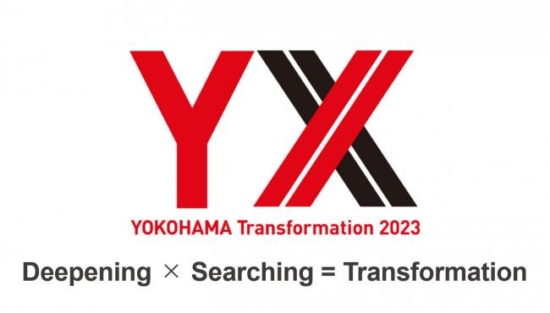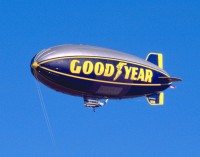Yokohama addresses car ownership shift in mid-term plan

Urban planners anticipate a decline in individual car ownership and commensurate increase in use of infrastructure-type vehicles to move people and goods in years to come, and Yokohama Rubber is now planning for this in its newly-announced medium-term management plan, Yokohama Transformation 2023. The company intends this successor to the 2018-launched Grand Design 2020 (GD2020) three-year plan to “serve as the platform” for its growth over the next three years.
The above trends will see what were once consumer tyres become commercial tyres. Yokohama Rubber intends to respond to this changing market via a two-pronged approach that applies to its consumer and commercial tyre businesses.
Consumer tyre businesses
Yokohama Rubber will more heavily orient its consumer tyre business towards high-value-added tyres, specifically the flagship Advan brand, Geolander SUV and light truck lines, as well as winter tyre products. Initiatives that Yokohama Rubber will undertake during the Yokohama Transformation 2023 period include expanding size ranges and strengthening these products’ replacement market sales, offering tyre lines that respond to specific trends in regional markets, and expanding activities sales of Advan and Geolandar products within the original equipment sector.
Through these initiatives, Yokohama Rubber aims to increase Advan brand sales by 50 per cent, Geolandar brand sales by 15 per cent and winter tyre sales by 20 per cent over their respective 2019 levels in 2023, thus raising the combined sales ratio of these three core tyre brands from the current 40 per cent to 50 per cent.
Commercial tyre businesses
Market changes brought about by CASE, MaaS and other trends will strongly influence this sector. Within the commercial tyre business, Yokohama Rubber will therefore “search for and seize” new business opportunities in four thematic areas – cost, service, DX and product line-up.
Cost: As previously mentioned, Yokohama Rubber anticipates a future reclassifying of certain products traditionally considered consumer tyres as commercial tyres. To meet the expected growth in demand for lower-cost tyres driven by such changes in the market, Yokohama will position its passenger car tyre plant in India as the lowest cost tyre factory in the Yokohama Rubber Group and create a new, low-cost production model. The company will also consider using a low-cost production model to expand output at its truck and bus radial plant in Thailand.
Service: With corporate ownership of vehicles expected to increase, Yokohama Rubber will package tyre-related after-sales services with the tyres it sells. The Japanese company will strengthen its service system by leveraging its nationwide sales and logistics network and increasing its service trucks.
DX: Yokohama Rubber will accelerate its development of tyre sensors and create new value-added services by gradually expanding services and customers as new functions are added to the tyre sensors.
Product line-up: The transportation and logistics industries are expected to need a wide variety of tyres to meet a range of mileage and usage conditions as electric and driverless vehicles become more common. Yokohama Rubber will help facilitate this transformation in logistics by expanding its tyre line-up, thus further enhancing a core strength that provides it with a distinct advantage in this market.
In addition, Yokohama Rubber will increase its TBR production capacity to “meet robust demand” and expand sales revenue for these products to 100 billion yen (£677 million) by 2025. One specific project it mentions is the continued effort to “bolster its Mississippi plant’s ability to provide a stable supply of truck and bus tyres in the United States.”
OHT business
The company will continue integrating ATG and Aichi Tire into its OHT business during the three-year Yokohama Transformation 2023 period in order to further accelerate the growth of Yokohama Off-Highway Tires. It will strengthen this business with “a multi-brand approach to market development and responsiveness to customer needs.” Yokohama is also “aggressively investing” to expand production capacity as it targets OHT sales revenue of 140 billion yen (£947 million) in 2025, the equivalent of 30 per cent of group-wide profit at that time.
Breaking sales records
By implementing the new plan’s many initiatives, Yokohama Rubber aims to achieve record sales revenue of 700 billion yen (£4.7 billion) and business profit of 70 billion yen (£474 million) in 2023. By 2025, it plans for sales revenue to grow to 770 billion yen and business profit to 80 billion yen.



Comments